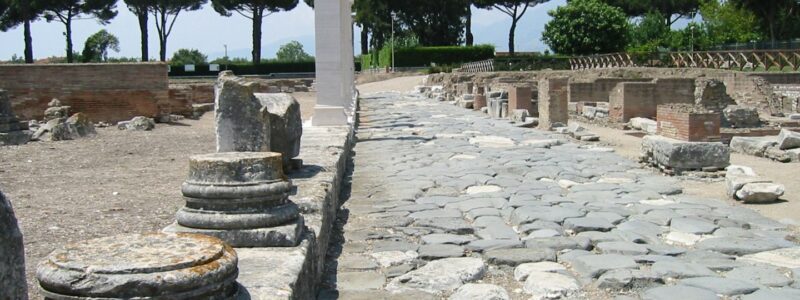Roman Toleration
Roman toleration of religions and practices of its conquered populations was much greater than in previous empires. Most ancient civilizations would prohibit other religious practices, for example, and force conquered peoples to accept the gods of their conquerors. His message would have been severely suppressed if Christ had been born into any of these intolerant nations.
Roman Toleration
 The Romans differed from prior empires in allowing their conquered population more autonomy. Rome wanted peace throughout its Empire and came to the practical conclusion that they would need some tolerance to have this peace.
The Romans differed from prior empires in allowing their conquered population more autonomy. Rome wanted peace throughout its Empire and came to the practical conclusion that they would need some tolerance to have this peace.
Rome, at its peak, conquered nations on three continents and throughout the Mediterranean Sea. Each nation had its religious system, traditions, and languages. Rome allowed conquered nations to have their gods and traditions. Rome allowed annexed people to worship their gods and even built temples for the gods of captured groups. Rome even facilitated animal sacrifices to foreign gods on certain occasions. Rome wanted peace, and they worked with conquered peoples to give them enough autonomy to secure this goal.
All Rome required in return was to submit to Roman authority, not cause any revolts, and give some offerings to the Roman gods on occasion. This tolerance seems very fair to the Roman mind, giving conquered people their autonomy while requiring minimal obedience.
Roman Toleration and the Jews

The Torah
The requirement to give some worship to Roman gods was completely unacceptable to the Jewish population in Judea. The Jews were monotheistic, and forbidding worship of other gods was specifically forbidden in the Torah. The Jews refused to take part in any festivals for Roman gods and refused to give even cursory worship to their gods and tradition.
This was a problem.
Rather than risking a rebellion, the Romans ignored this minor religious community and let them do what they wanted. Rome conquered Judea in 63 BC and was remarkably tolerant of its errant Jewish population. The Romans allowed the Jews to retain their monotheism and coexist with other conquered people. One reason for this remarkable tolerance is that Rome was having its problems. A multi-decade civil war was occurring, with the outcome anything but certain. Rome did not need another problem in a remote section of its Empire while fighting for its survival.
Roman Toleration and Christianity
Rome felt the same way concerning the Christians during the early years. They viewed Christianity as merely another sect of Judaism and largely ignored them. Christianity initially was only a small group of formerly Jewish converts and hardly represented any threat to the mighty Roman Empire. Romans decided it would be best to look the other way.
Because of this tolerance, Christians had thirty years of relative peace. They effectively used this period of peace to grow locally and to spread throughout the known world with the ministry of Paul.
This changed with Nero, who severely persecuted Christians in 64 AD. He needed someone to blame for a destructive fire that destroyed a portion of Rome, and Christians seemed like a likely candidate.
Many Roman Emperors in the centuries ahead also severely persecuted Christians, while other Emporers were much more tolerant. Christianity seemed to prosper during times of persecution and spread during times of peace.
Christ arrived on the scene at a particular time in human history when Rome was tolerant of other religions, customs, and practices. It was a time when the message of the Good News could spread throughout the Roman world.
Summary
Christ came at just the right time during a narrow window when the Roman authorities were tolerant of Judaism and its many variants. Thousands of miles of guarded roads were being built, a postal service was created to enable communication throughout the Empire, a common language was spoken, and the Empire was at peace with its neighbors.
It was an ideal time for the message of Christianity to spread worldwide. There was no other time in ancient history when such favorable attributes would be present.
But the time would be short; Rome would eventually abolish a Jewish rebellion in 70 AD and destroy the Jewish Temple and Jerusalem. Millions of Jews would be killed, with the rest dispersed worldwide. The situation looked bleak, but the nascent Christian movement would flourish and become the dominant force in the Roman Empire.
It all started with one man who came at just the right time in human history for the message to spread. But who is this one man? A cursory evaluation shows this man had many of the characteristics of other religious figures who preceded him. Is he just somebody who copied these other religious figures to achieve fame (if not fortune)? That will be investigated in our next blog.




